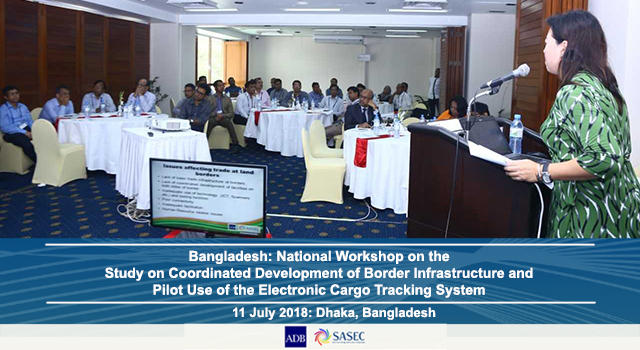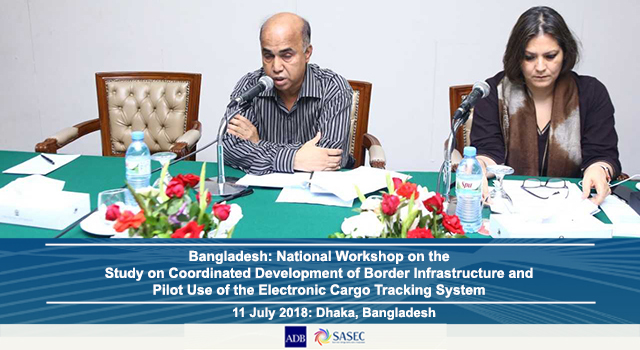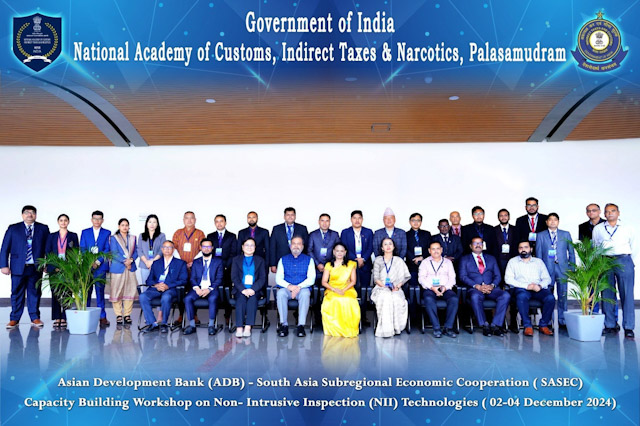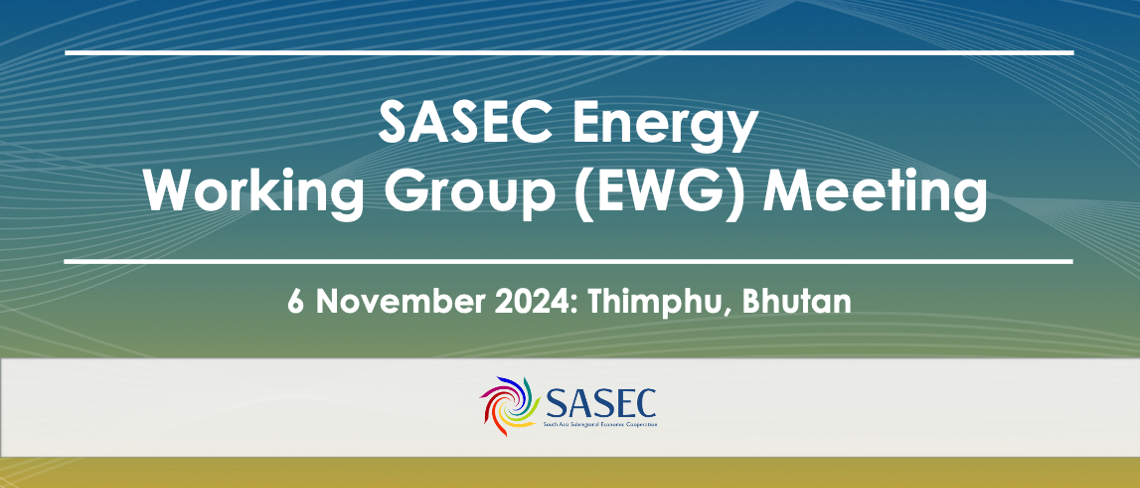
Bangladesh: National Workshop on the Study on Coordinated Development of Border Infrastructure and Pilot Use of the Electronic Cargo Tracking System
11 Jul 2018
The Asian Development Bank held a workshop on 11 July 2018 in Dhaka, Bangladesh, to discuss two Customs modernization initiatives in Bangladesh, (i) the Study on Coordinated Development of Border Infrastructure; and (ii) the use of an electronic cargo tracking system (ECTS).
The Study on Coordinated Development of Border Infrastructure provided the following recommendations:
- Adopt a hybrid model for the border crossing point (BCP), ensuring adequate facilities on both sides of the border. The Study recommends setting up offices for various agencies involved in cross-border clearance, trade infrastructure facilities, and common facilities;
- Develop connectivity behind and across the border, such as road and rail connectivity;
- Establish a National Single Window enabling traders to submit documents at a single location and receive public services through a single interface;
- Set up a single entity to oversee the development, operational planning, and management of the BCP; and
- Institutionalize coordination among national agencies and the private sector, across borders.
On the use of ECTS, the Workshop presented
- Features of the ECTS;
- Findings from various ECTS studies and pilot programs conducted in the region;
- Operations where the ECTS can be applied;
- Benefits of using ECTS for regulatory agencies and private sector industries involved in trade; and
- The ECTS pilot run between India and Nepal.
Workshop participants included officials from the Bangladesh Ministry of Commerce, the National Board of Revenue, the Bangladesh Land Port Authority, and staff and consultants from the Asian Development Bank.











